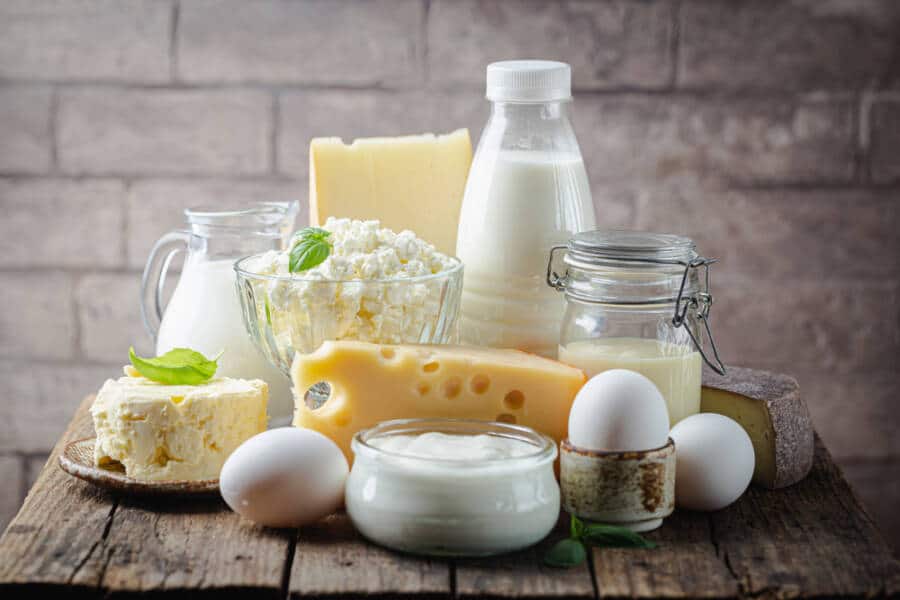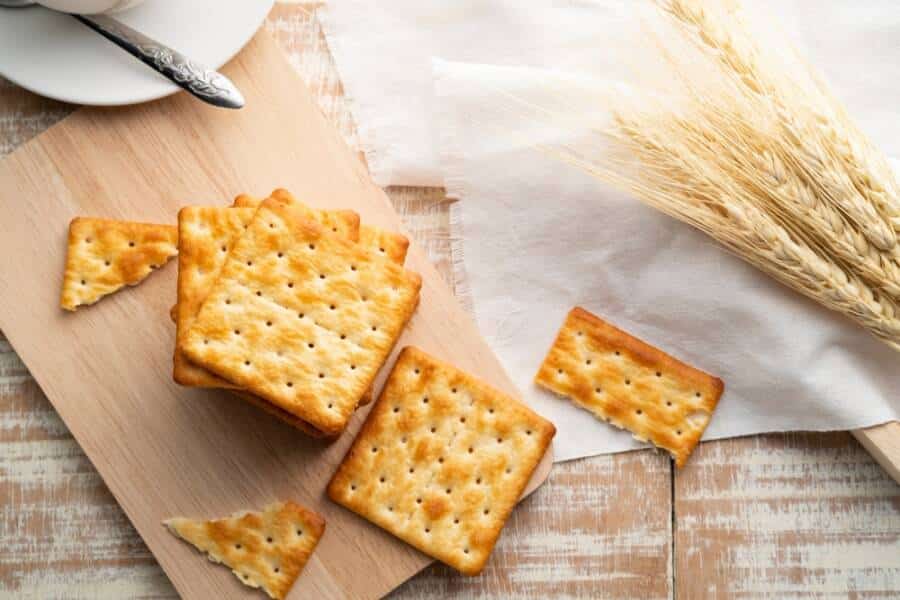The older you get, the more critical it is to care for your dental health.
According to a study published in Advances in Nutrition back in 2016, cavities affect approximately 80% of the world’s population. And the sad truth is that almost a quarter of adults in the US have untreated cavities.
The study says a leading cause is high sugar consumption, but also poor diet. And we found out: cavities are just one of many dental health issues that can be caused or aggravated by the foods you eat.
Daily diet plays a huge role in oral health, which is vital to overall health. Brushing your teeth, flossing them, and visiting the dentist on a regular basis are all typically associated with maintaining a healthy smile. But there’s more to it than that.
The essential nutrients from a healthy diet reinforce the bone that sustains your teeth and protects them against gum disease, tooth decay, and oral cancer.
On the other hand, a diet that lacks nutritional value can have the opposite results, causing enamel erosion, staining, and tooth decay. That’s why brushing at least twice a day with fluoride toothpaste and floss once daily is so important.
To ensure you’re avoiding the top offenders and eating as many teeth-friendly foods as possible, Nutrition In USA has come up with a list of the best and worst foods for your teeth.

Good for dental health: Dairy
Milk and any other dairy products are primary dietary sources of calcium that are vital for healthy teeth. Calcium is the crucial ingredient in a mineral called hydroxyapatite, which fortifies tooth enamel and bones.
And even though teeth aren’t technically bones, they share some of the same properties. Dairy products, especially cheese, also contain casein, a kind of protein. Research has discovered that caseins are critical in stabilizing and repairing tooth enamel.
Good for dental health: Sugar-free gum
Sugar-free gum helps clean teeth by boosting the production of saliva. Saliva is nature’s way of washing away any acids that are made by the bacteria in your mouth. It also cleans the teeth with bone-strengthening calcium and phosphate.
Besides that, many assortments of sugarless gum are sweetened with xylitol, an alcohol that decreases bacteria. You may want to stick with mint flavors, though. Studies show that the acid used to make certain fruit flavors can harm teeth, even if only a bit.
Good for dental health: Water
Water can help wash away any sugars and acid from your teeth. It also contains fluoride, which we already know is a mineral that shields us against tooth erosion and is found in toothpaste and certain mouthwashes.
Fluoride materializes naturally in water, including some bottled water. And the good news is that most tap water in the US is fortified with it.
Good for dental health: Carrots
Carrots, ideal for soups, snacking, and roasting, are fortunately high in vitamin B6, vitamin A, biotin, and fiber while also low in fat. And since they have a more complex texture, they’re fantastic for teeth.
Foods that are abrasive and have texture to them can also serve as a toothbrush because they get build-up and plaque off the gums and teeth. After all, they’re rough when you chew them. And they’re low in sugar, which is a bonus.
Good for dental health: High-fiber foods
Leafy vegetables and all other high-fiber foods stimulate good digestion and healthy levels of cholesterol. They also work wonders for your teeth, mainly because they require lots of chewing.
Consuming a bowl of beans or spinach is practically like running your teeth through a car wash. All that chewing generates saliva, and the food cleans your teeth as it gets mashed into small pieces.

Bad for dental health: Citrus fruit
Citrus fruits are an excellent source of vitamin C and many other nutrients. And while we agree that they are good for you in many ways, that’s not the case when it comes to your teeth.
The enamel, which is the hard outer layer of your teeth, is susceptible to erosion and decay. Grapefruit and lemon juice, especially, are highly acidic and can rot the enamel on your teeth over time.
We should point out that orange juice is less acidic, and many store-bought varieties are fortified with teeth-friendly calcium and vitamin D. Fortified OJ is good for you on many levels. Just be sure to brush and floss as recommended.
Bad for dental health: Bananas
You might not have known this, but bananas are cariogenic. Because of its soft texture, it can effortlessly find its way into all the nooks and crannies of your gums and teeth, hanging around to cause decay.
It would be best if you tried to avoid eating these types of mushy foods when you can’t brush your teeth in a timely manner.
Bad for dental health: Soda
It’s not a secret that consuming too many sugary drinks can breed cavities. What’s less well-known, though, is that carbonated sugary drinks seem to wreak havoc on teeth more than the non-carbonated sugary varieties.
Research has discovered that carbonated sodas are more acidic and corrosive than non-carbonated juice drinks. If you absolutely MUST drink soda, the best way to go is to drink it during a meal rather than consuming it on its own throughout the day.
The food you chew will help neutralize the acid. And the time your teeth are exposed to the acid is much shorter.
Bad for dental health: Chewy candy
The stickier the candy, the worse off your teeth will be. Extra-chewy candies, like caramels, taffy, or SweeTARTS, will stick to your teeth for a long time, allowing all that nasty bacteria in our mouths to leisurely dine on the deposited sugar.
Bacteria burn sugar to make acid, which annihilates the defensive layer of tooth enamel and causes cavities. And sugary, chewy, and acidic, a category that includes many “sour” varieties, candies deliver a “triple whammy of negatives.”
They carry a massive load of erosive acid, besides the one produced by the interaction of bacteria and sugar.
Bad for dental health: Raisins
You might not have thought of them this way, but raisins and quite a few other dried fruits are as sticky and chewy as any gummy candy, making them equally responsible for teeth issues.
Their texture makes them more difficult to brush away with your toothbrush, increasing the likelihood of cavities.

Bad for dental health: Crackers
The refined carbs found in saltines and practically any other crackers transform into sugar the minute they enter the mouth, providing food for cavity-forming bacteria.
This type of snack also becomes mushy when chewed, turning into a paste-like gunk that builds up in your molars and hides between teeth. If you frequently munch on crackers, you might have cause for concern.
But according to dentists, eating them in moderation isn’t likely to cause any long-term issues. Just as long as you thoroughly floss and brush your teeth. Usually, some good oral hygiene can compensate for almost anything!
If you don’t feel a regular toothbrush and toothpaste is getting the job done, you might like this Water Flossing Oral Irrigator from Amazon!
We hope you found this article on dental health useful. Please fell free to share your own experiences in the comments section below.
And for more fantastic health and nutrition advice, we highly recommend you also read: 6 Risky FDA-Approved Store Foods That Probably Cause Food Poisoning







